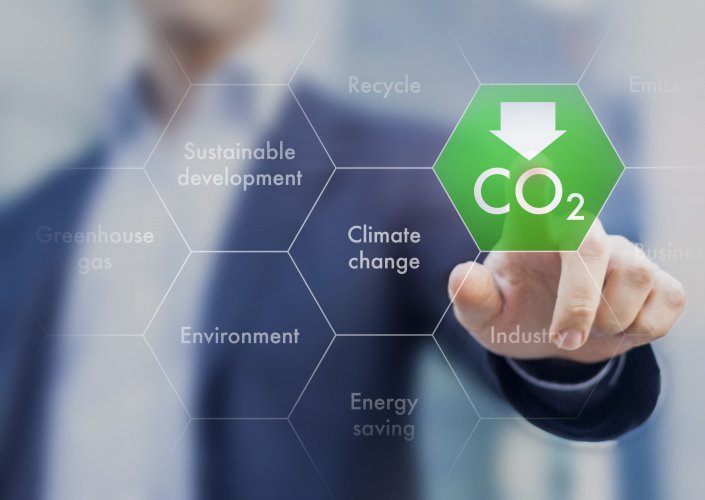Climate policy affects world trade, which must be taken into account to positively strengthen international cooperation and standards.
One of the main tools of EU climate policy is the CBAM carbon import adjustment mechanism, which is designed to level the playing field for companies subject to different climate regulations and taxes, LSE reports.
The article said that there are about 70 carbon pricing schemes in the world, which cover the costs of emissions, including those related to harm to human health, the environment, property, etc. Such schemes are mostly implemented through the payment of tax. However, pricing approaches differ, and methods for comparing their equivalence are just beginning to emerge.
It is said that this has prompted some governments to consider CBAM. The mechanism imposes a certain duty on the import of carbon-intensive goods from countries with less strict climate policies.
The article explained that this could be a way to level the playing field for companies subject to different climate regulations and taxes. And also to prevent companies from transferring their production activities to countries with less ambitious climate policies, i.e. "carbon leakage".
The authors emphasized that such unilateral measures could cause trade tensions and create high administrative costs for companies and governments. Thus, developing countries are concerned about the potential conflict between CBAM and the principle of "Common but Differentiated Responsibility" (CBDR). This principle is included in the Paris Agreement and recognizes that developed countries must play a greater role in combating climate change due to their significantly higher historical emissions and greater role in warming temperatures.
They pointed out that low-carbon technologies currently belong mainly to developed countries. And trade rules that favor "cleaner" exporters provide for the transfer of market share from developing to developed countries. In the absence of policies to support the competitiveness of these countries, particularly with regard to access to finance, these measures may conflict with the CBDR.
It is noted that examples of such cooperation are the Agreement of the World Trade Organization (WTO) on subsidies for fishing
, which prohibits harmful subsidies to support ocean sustainability, was adopted in June 2022.
The authors emphasized that in the absence of a global agreement on trade and climate, regional trade agreements (RTAs) are strengthened in terms of their focus on climate change. RTS increasingly bind parties to the terms of the Paris Agreement, with some focusing on removing trade and investment barriers to environmentally friendly goods, services and technologies.
According to the WTO, 64 out of 349 RTAs (18%) currently contain at least one provision that directly addresses climate change, global warming, reducing greenhouse gas emissions, or creating a low-emission economy, and almost all include at least one environmental provision.
It is noted that there is growing support among WTO members for initiatives related to sustainable development, which focus on tariff and non-tariff policies, in particular:
- structured discussions on the sustainable development of trade and the environment;
- informal dialogue on plastic pollution and environmentally sustainable trade in plastic;
- fossil fuel subsidy reform initiatives.
As EcoPolitic reported before, the European Commission published the project Regulations on the implementation of CBAM regarding the reporting obligations and rules of the CBAM Import Carbon Adjustment Mechanism.





